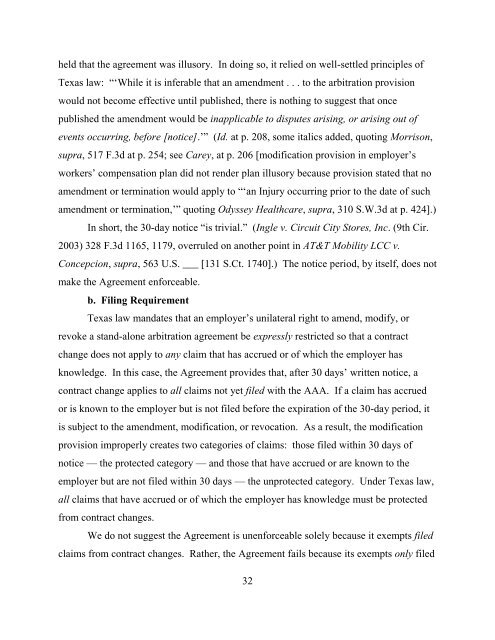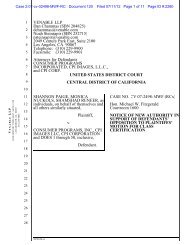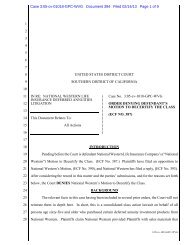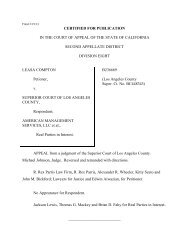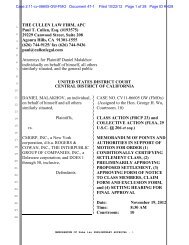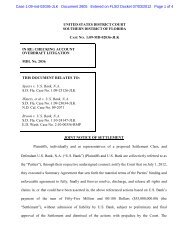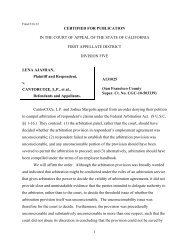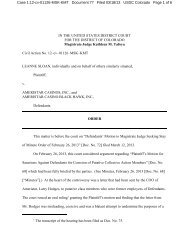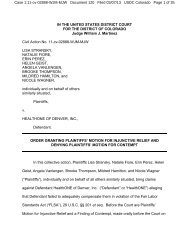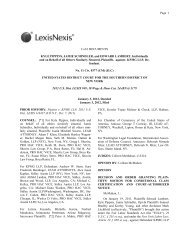here - FindLaw
here - FindLaw
here - FindLaw
You also want an ePaper? Increase the reach of your titles
YUMPU automatically turns print PDFs into web optimized ePapers that Google loves.
held that the agreement was illusory. In doing so, it relied on well-settled principles of<br />
Texas law: ―‗While it is inferable that an amendment . . . to the arbitration provision<br />
would not become effective until published, t<strong>here</strong> is nothing to suggest that once<br />
published the amendment would be inapplicable to disputes arising, or arising out of<br />
events occurring, before [notice].‘‖ (Id. at p. 208, some italics added, quoting Morrison,<br />
supra, 517 F.3d at p. 254; see Carey, at p. 206 [modification provision in employer‘s<br />
workers‘ compensation plan did not render plan illusory because provision stated that no<br />
amendment or termination would apply to ―‗an Injury occurring prior to the date of such<br />
amendment or termination,‘‖ quoting Odyssey Healthcare, supra, 310 S.W.3d at p. 424].)<br />
In short, the 30-day notice ―is trivial.‖ (Ingle v. Circuit City Stores, Inc. (9th Cir.<br />
2003) 328 F.3d 1165, 1179, overruled on another point in AT&T Mobility LCC v.<br />
Concepcion, supra, 563 U.S. ___ [131 S.Ct. 1740].) The notice period, by itself, does not<br />
make the Agreement enforceable.<br />
b. Filing Requirement<br />
Texas law mandates that an employer‘s unilateral right to amend, modify, or<br />
revoke a stand-alone arbitration agreement be expressly restricted so that a contract<br />
change does not apply to any claim that has accrued or of which the employer has<br />
knowledge. In this case, the Agreement provides that, after 30 days‘ written notice, a<br />
contract change applies to all claims not yet filed with the AAA. If a claim has accrued<br />
or is known to the employer but is not filed before the expiration of the 30-day period, it<br />
is subject to the amendment, modification, or revocation. As a result, the modification<br />
provision improperly creates two categories of claims: those filed within 30 days of<br />
notice — the protected category — and those that have accrued or are known to the<br />
employer but are not filed within 30 days — the unprotected category. Under Texas law,<br />
all claims that have accrued or of which the employer has knowledge must be protected<br />
from contract changes.<br />
We do not suggest the Agreement is unenforceable solely because it exempts filed<br />
claims from contract changes. Rather, the Agreement fails because its exempts only filed<br />
32


